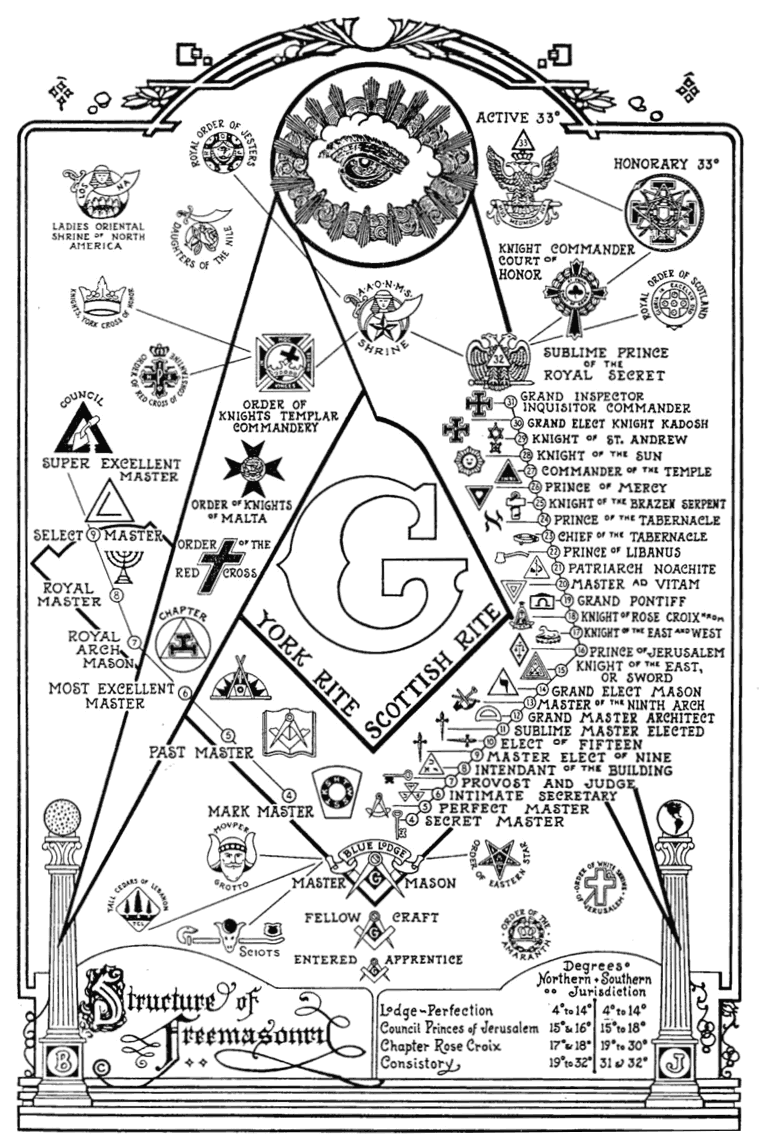Who are the Freemasons?
A Freemason is a man who feels good about himself and others. A Freemason cares about the future as well as the past, and does what he can to make the future better for everyone. A Freemason is a respectable citizen and is taught to conform to the moral laws of society and abide by the laws of the government under which he lives. He is a man of charity and good works.
What is Freemasonry?
Freemasonry is the oldest and one of the largest fraternities in the world, and although it encourages good citizenship and political expression, it is not a political or religious organization. Although its charitable activities are manifold, it is not a welfare or benefit organization.
Freemasonry teaches each of us that we have a responsibility to make things better in the world. It is unlikely that any one will find a cure for cancer, or eliminate poverty, or help create world peace, yet every man, woman, and child is capable of doing something to help others, or to make things a little better.
Freemasonry is deeply involved with helping people as it contributes millions of dollars every day, just to make life a little easier. Although it is not made public, the great majority of that help goes to people who are not Masons. Some of the Masonic charities are vast projects, such as the Children’s Hospitals and Burn Institutes built by the Shriners. Some charities are less noticeable, such as helping a widow pay her electric bill or buying school lunches for disadvantaged children. Masons and their Lodges try to help make the world a better place in which to live.
What is a Lodge?
Lodges are the basic, and the oldest, organizations in Freemasonry. The term “Lodge” comes from the structures, which the stonemasons built against the sides of the cathedrals during construction. In winter, when building had to stop, Masons lived in these Lodges and worked at carving stone.
Today, a Lodge is a local organization of Masons. It is a group of Masons in one area that meet together, and it is also the physical building, or a room in which they meet.
What takes place in our lodges is partly the formal business that any association conducts. There is the consideration of minutes of previous meetings, dealings with petitions for membership, reviewing accounts of general and charitable funds, subscriptions, donations, and planning for new activities and endeavours.
Is Freemasonry a secret society?
Despite historical claims, Freemasonry is not a secret society. Freemasonry’s so-called secrets are solely a ceremonial manner of demonstrating that one is a Freemason when in Lodge meetings. There have always been special signs and hand grips by which the initiated might make themselves known to one another, as well as private rituals which are not shared with non-members. In this respect, Masonry preserves its centuries-old reputation for secrecy, but the secretiveness is fittingly ceremonial.
There are more reasons why Freemasonry is not a secret society. The fraternity does not hide its existence or its membership. In fact, Masons are proud to be Masons, and often wear rings or lapel pins that show the Square and Compasses, the most widely used and recognized symbol of Masonry. They meet in Masonic Lodges and Masonic Halls, which are familiar sights in thousands of towns and cites. Our nation’s telephone directories list Masonic Lodges in every state. When Freemasons meet, the meetings are public-record. Publications of Masonic Literature, and Internet entities like our Web Page are readily available to anyone.
What organizations are out there for Freemasons?
Vancouver Lodge No. 68, A.F. & A.M., B.C. & Y. is the beginning of your lifelong journey in Freemasonry. There is a number of bodies and organizations that the Blue Lodge Master Masons can join to continue their education.
